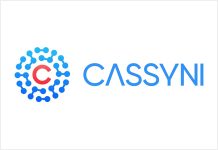
Springer Nature has reached new Transformative Agreements (TAs) with VIVA – Virginia’s academic library consortium – and OhioLINK, Ohio’s academic library consortium, that will boost open science, increase coverage for underserved researchers, break down barriers to access for funding, and broaden the reach and support for open access (OA) publishing in the United States. New TAs with VIVA and OhioLINK will contribute a 100% increase in articles covered under Springer TAs in the Americas in 2024, with that number expected to continue to rise as more agreements are concluded.
In the wake of the COVID-19 pandemic, the Biden administration issued the Nelson memo, ordering all U.S. agencies to ensure immediate public access to federally-funded research publications in a step toward a fully OA U.S. In the effort to follow through on the Nelson memo, TAs have proven to be the most effective approach to achieving immediate OA for all primary research. This is because TAs consolidate subscription fees expended by libraries for access to reading paywalled journals and article processing charges (APCs) expended by authors to publish OA, into one agreement with an eye to cost-control and the scholarly transition to OA.
A recent Springer Nature OA case study featuring three U.S. institutions – Carnegie Mellon, the University of California, and the Statewide California Electronic Library Consortium (SCELC), provides evidence of how TAs help to magnify the impact of researchers’ work. At the University of California alone, OA articles published by University of California authors through the Springer TA in 2021 and 2022, were downloaded more than 3.6 million times worldwide – a 120% increase over the previous year, prior to the Springer TA.
The Springer Nature case study offers additional insights into the U.S.’s OA journey. One of the most salient, is that research faculty are integral to the scholarly ecosystem and play an important role in maintaining the integrity of research and creating global impact. The greater visibility TAs provide to such researchers are an added benefit to this consequential community. Driving this point home, panelists discussing TAs at the 2023 Charleston Library Conference – a national November gathering of academic librarians, noted that the driving factor behind TAs are researchers themselves choosing to publish OA.
Carrie Webster, Vice President of Open Access at Springer Nature, said: “TAs drive equity by allowing researchers who would not have enough funding otherwise, to instantly publish their articles open access in journals of their choosing. Open access articles are more frequently read and cited than those published behind paywalls and allow researchers to conduct collaborative research internationally. The primary catalyst of transformative agreements is the decision of researchers to publish open access.”
Amy Pawlowski, Executive Director at OhioLINK, said: “We are very happy to work with Springer to both expand access to Ohio’s scholarship and remove barriers to research and learning.”
Genya O’Gara, Acting VIVA Director, said: “We’re pleased to collaborate with Springer on this new agreement, aimed at significantly expanding the reach of Virginia’s research and scholarship while enhancing Virginia authors’ access to publishing opportunities. This partnership underscores VIVA’s dedication to providing equitable publishing opportunities for researchers in Virginia and ensuring access to learning materials for all students, irrespective of their institution.”
Also of significance, is that the wider reach Springer Nature TAs provide for US research globally – supporting the OA standing of publications at more than 3,500 institutions worldwide – should be seen as a competitive national advantage, helping the U.S. to maintain an edge on innovation.




























